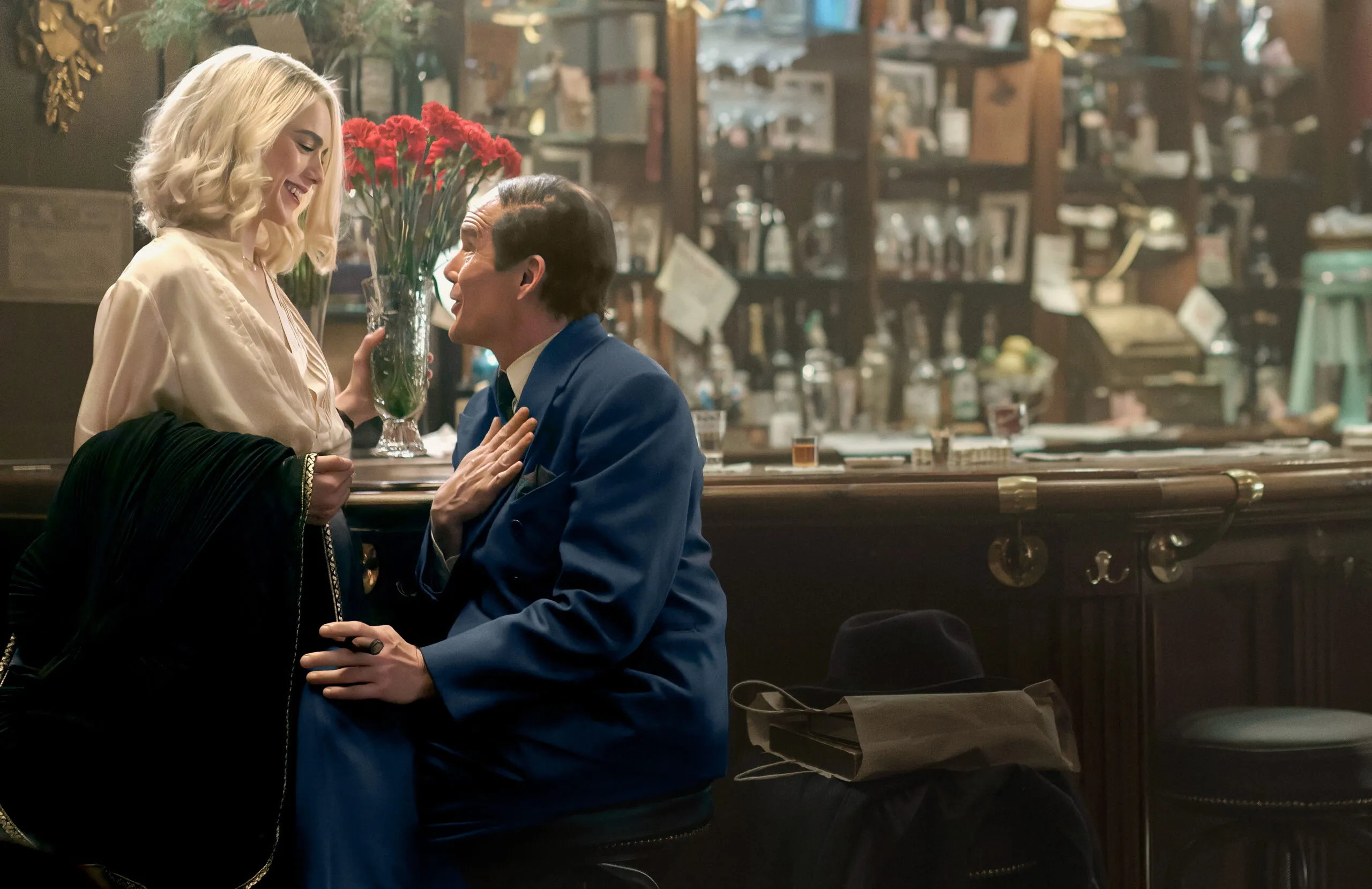A Deep Look at Lorenz Hart’s Final Years and the Changing World of Broadway
Filmmaker Richard Linklater’s Blue Moon offers an intimate portrait of lyricist Lorenz Hart, exploring themes of regret, genius, and the loneliness of artistic decline. Ethan Hawke stars as Hart — referred to as Larry in the film — a man spiraling into reflection on the night Oklahoma! premieres, marking composer Richard Rodgers’ first collaboration with Oscar Hammerstein II and the end of Rodgers’ partnership with Hart.
Set almost entirely inside Sardi’s, the legendary Broadway restaurant, the story unfolds like a one-act play filled with wit and melancholy. Larry drinks alone as he recalls his career highlights, artistic frustrations, and fading relevance in a rapidly changing theater world. Based on a script by Robert Kaplow, the film blends humor and heartbreak, portraying an artist whose brilliance is shadowed by fear of being forgotten.
Artistic Separation and Emotional Collapse
Blue Moon delves into the emotional consequences of Rodgers and Hart’s separation, shaped by Hart’s alcoholism and erratic behavior. Andrew Scott delivers a nuanced performance as Rodgers, a role that earned acclaim for its depth and restraint. Their fractured partnership becomes the emotional center of the film — a portrait of professional loyalty turning into loss.
Another key narrative thread explores Hart’s affection for his young protégé, Elizabeth Weiland, played by Margaret Qualley. Her indifference exposes his inner conflict: the struggle to find acceptance in a society hostile to his identity. As a gay Jewish man in 1940s New York, Hart wrestles with unfulfilled desires and the pressure to appear “normal.”
Through Linklater’s direction and Hawke’s transformative performance, Blue Moon becomes not just a biographical drama but a meditation on love, legacy, and the price of artistic devotion.







